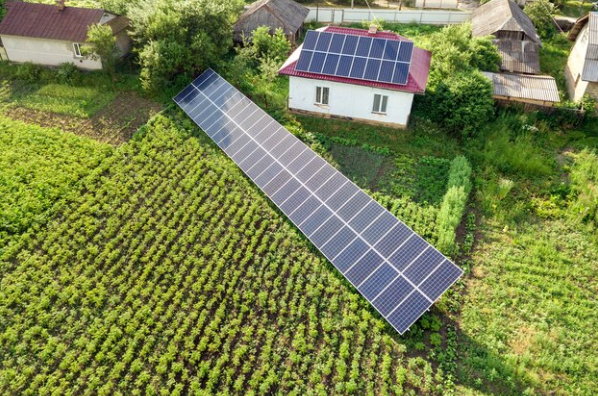

In an era where sustainable practices are at the forefront, the integration of solar panels in agriculture has emerged as a revolutionary force, reshaping the landscape of food production. This exploration delves into how solar energy, facilitated by solar panels, is transforming the way we grow and harvest our food. A spotlight will shine on the commendable GC Solar & Electric in leading the charge toward sustainable agricultural practices.
The agricultural sector has witnessed a significant shift with the increasing adoption of solar panels. South Florida, with its abundant sunlight, serves as a perfect canvas for the implementation of solar energy solutions in farming. Farmers are recognizing the potential of solar panels not only to reduce operational costs but also to contribute to a more eco-friendly and sustainable approach to food production.
Solar energy, harnessed through solar panels, is a game-changer in agriculture. It goes beyond merely providing electricity for farm operations. Solar panels are being strategically deployed to power irrigation systems, lighting for greenhouses, and even to generate energy for processing facilities. This sustainable energy source minimizes the carbon footprint associated with traditional farming practices, offering a cleaner and more environmentally conscious alternative.
Solar systems, designed and implemented by companies like GC Solar & Electric, play a pivotal role in optimizing energy use on farms. These systems are tailored to the specific needs of each agricultural operation, ensuring that energy is harnessed and utilized efficiently. From precision irrigation to running machinery, solar systems contribute to enhanced efficiency in every aspect of food production.
Solar panels not only generate electricity but also contribute to increased energy efficiency in agriculture. Through the capture and utilization of solar energy, farms can potentially become self-sufficient, reducing dependence on external power sources. This self-sufficiency not only lowers operational costs but also insulates farms from fluctuations in energy prices, contributing to long-term financial stability.
GC Solar & Electric stands out as a leader in championing sustainable agricultural practices through solar solutions. The company’s commitment to providing customized solar panel installations and advanced solar systems showcases its dedication to transforming the agricultural landscape. By collaborating with farmers, GC Solar & Electric is paving the way for a future where clean, renewable energy is at the core of food production.
As the agricultural sector continues to embrace solar panels and renewable energy, the benefits multiply. Beyond cost savings, the environmental impact is substantial. Solar panels reduce reliance on non-renewable energy sources, helping mitigate climate change and fostering a more sustainable future for agriculture.
The integration of solar panels in agriculture is a transformative force, reshaping how we produce food. The synergy of solar energy, solar panels, and advanced solar systems is creating a more sustainable and eco-friendly approach to farming. GC Solar & Electric in this endeavor underscores the importance of innovative solutions in building a greener and more efficient future for agriculture. As solar panels continue to dot the agricultural landscape, they illuminate a path towards a sustainable harvest and a more environmentally conscious food production industry.

